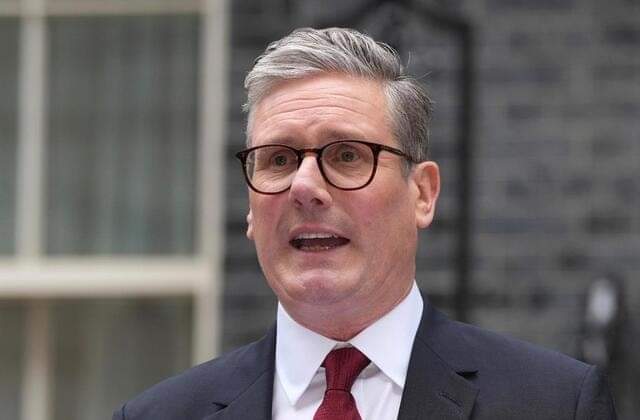The administration of Prime Minister Keir Starmer in the United Kingdom is planning to increase tuition fees in universities in the country effective from September 2025, a report by The Telegraph of London has indicated.
The increase is going to be the first in eight years.
Education Secretary, Bridget Phillipson, is expected to announce the tuition fees rise in line with the Retail Price Index inflation.
The fee rise is expected to come into force from September 2025, meaning that it will affect A-level students who are currently applying to universities.
Tuition fees have remained frozen at £9,250 since 2017. It is unclear which month’s inflation figures the Labour Party government will choose to link fees to, but matching them to the current rate of 2.7 per cent would see fees rise to about £9,500 from next year.
Previous reports suggested that the government would raise tuition fees to £10,500 over the next five years. The Telegraph understands that ministers do not want to commit to any uplift beyond the next academic year as they consider complete reform of the current system.
The move follows growing concerns that many institutions are now facing financial crisis, with 40 per cent of English universities expecting to slump into a deficit this year.
The Coalition government tripled tuition fees to £9,000 in 2012. Fees only increased after that to hit £9,250 in 2017, where they remain frozen today despite soaring inflation over the past few years.
The Russell Group of elite universities has argued that the cap on tuition fees means they are now making a loss of about £4,000 per UK student.
University finances have also suffered from a dramatic drop in lucrative international students following a Tory crackdown on dependent visas.
Home Office figures showed 16 per cent fewer visa applications were made between July and September than in the same period in 2023.
Foreign students, who typically pay triple or even quadruple domestic students, had been largely propping up the sector. A sudden fall in numbers has removed a crucial lifeline for universities and amplified calls for immediate action from the new government.
Sources close to discussions told The Telegraph they were hoping that a small tuition fee rise would be announced in the budget last week as an acknowledgement by Rachel Reeves of the severity of the situation.
However, the Chancellor held off from unveiling any new funding for the higher education sector in her maiden budget.
The Telegraph understands she would have faced significant pressure to couple an interim increase in tuition fees with a reinstatement of maintenance grants, which would be at huge expense to The Treasury.
Modelling previously studied by Labour suggested reinstating the grants at a boosted £4,009 could cost up to £2.3 billion a year, The Telegraph revealed last year.
Announcing a tuition fee rise outside of a fiscal event is expected to buy the government time to finalise its shake-up of the university funding model.
Phillipson is expected to announce the inflation-linked rise in fees as a “first step” towards root-and-branch overhaul of the current system.
British universities have been badly hit by the decline in the number of foreign students applying to them.
According to the Office for Students, 40% of English universities are running unsustainable deficits. Shitij Kapur, vice-chancellor of King’s College London, has predicted that this will rise to 80%, while only fees of £12,500 (up from today’s £9,250, fixed in 2017) would start to correct the cri$is.
Peoplesmind


